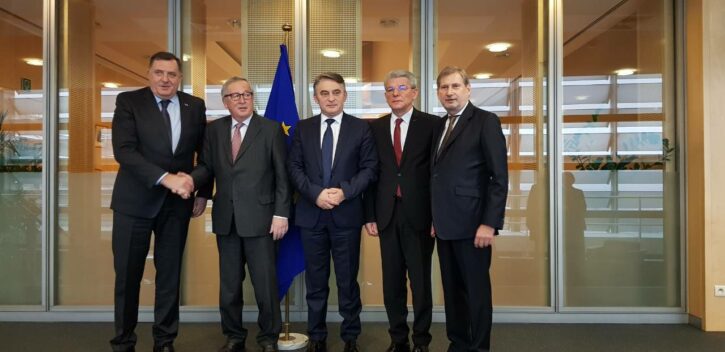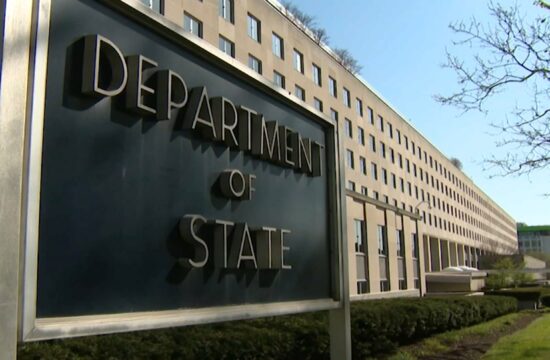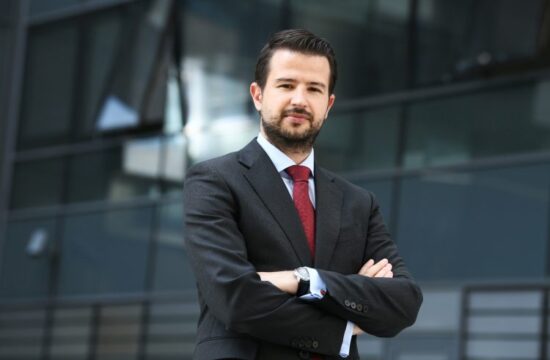
Bosnia’s three-membered Presidency received firm support from senior EU officials to continue the country’s EU path and amend to the State Election Law, but they were not told how they should change it, as that is "up to them," the three said on Wednesday.
The three Presidency members, Milorad Dodik, Zeljko Komsic and Sefik Dzaferovic, who each come from one of the three constituent majority ethnic groups in the country, met on Wednesday with EU’s Neighbourhood Policy and Enlargement Negotiations Commissioner Johannes Hahn and President of the European Council Donald Tusk to discuss the government formation process after the 2018 General Election and the necessary changes to the Election Law.
They were also joined by Jean-Claude Juncker, the President of the European Commission who attended the meeting unannounced.
Bosnian Croat Presidency member, Zeljko Komsic, said he got positive impressions from the meeting.
“We were told to change the Election Law, but we weren’t given any directions on how to do it. That’s our problem which requires a political agreement. Tusk told us that it’s essential to preserve the positive atmosphere in the country,” Komsic said. “The reconciliation process must be visible. My impressions are very positive. Brussels is open to cooperation and everything’s more or less up to us.”
Bosnia’s Presidency Chairman and its Serb member, Milorad Dodik, said that he and his colleagues told the EU officials about their differing opinions on Bosnia’s path toward NATO membership and that the issue needs to be discussed among the local officials.
“One of the things we talked about was the border issues with Croatia and Serbia and the issue of Bosnian property in Croatia, and the three of us agreed that this property belongs to our companies and that they should take ownership over them,” said Dodik. “It’s not fair that Croatia is blocking the acquisition of this property and we urge Croatia to talk this through with us and resolve it once and for all,” Dodik said.
He then added that the EU is based on individual rights and that collective rights should only be the basis for the development of further political processes but, according to him, this concept is not possible in Bosnia which requires an agreement among its two sub-state entities and its three constituent peoples on everything.
“What we saw here is a consensus among the three of us that the Election Law needs to change. All we need to do now is work on amending and modernising it,” Dodik concluded.
The Bosniak Presidency member, Sefik Dzaferovic, said that the meeting only confirmed the stance from an earlier meeting they had with EU Representative for Foreign Affairs and Security Policy, Federica Mogherini – a firm commitment to Bosnia's EU accession.
“When it comes to other topics of the meeting, there was the government formation issue and Bosnia’s NATO membership. I said that both of these issues concern the rule of law,” Dzaferovic noted. “What we need to start practising is implementing international law on matters which we can’t agree on. It is now up to us to start all the processes that we talked about.”




